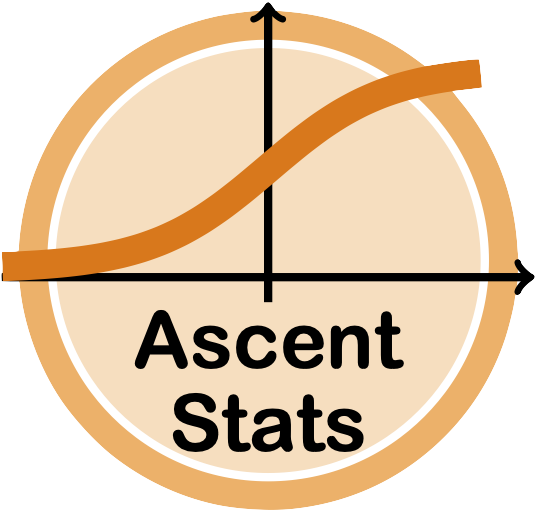Bayesian model for IFSC bouldering competitions
These ratings are estimate by a Bayesian statistical model using results from IFSC boulder competitions.
The model treats each climber and each boulder problem as having an underlying “grade” or ability level. We estimate these grades from the observed data, such as the success or failure of climbers on different boulder problems.
The model distinguishes between two types of “games”, zones and tops, and assigns each a different mean grade ($\mu_{zone}$ and $\mu_{top}$).
Priors
The prior mean for each climber’s ability level is calculated from the previous season’s analysis, or set to 0 if it is the first season for that climber. The prior standard deviation is always set to 2 grades.
Data
The data includes information about climbers, boulders, rounds, and whether each attempt at a “game” was successful or not. Parameters: The parameters include the grade for each climber, the grade for each route, and the mean grade for zone routes ($\mu_{zone}$) and top routes ($\mu_{top}$).
Model
The grades for climbers and tops and zones are assumed to be normally distributed around their respective priors. For the success or failure of each climber to achieve each top and zone, the model uses a logistic regression model with the difference in climber and route grades as the predictor.
This model uses Bayesian inference, which provides a probabilistic framework for estimating the unknown parameters (grades) based on the observed data, incorporating prior information and uncertainty.
 AscentStats
AscentStats